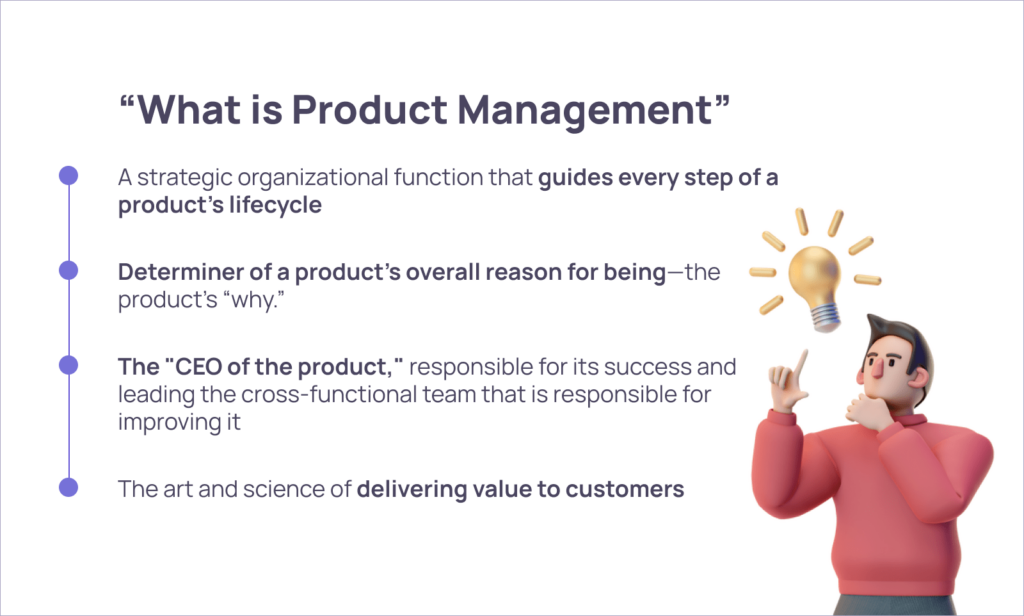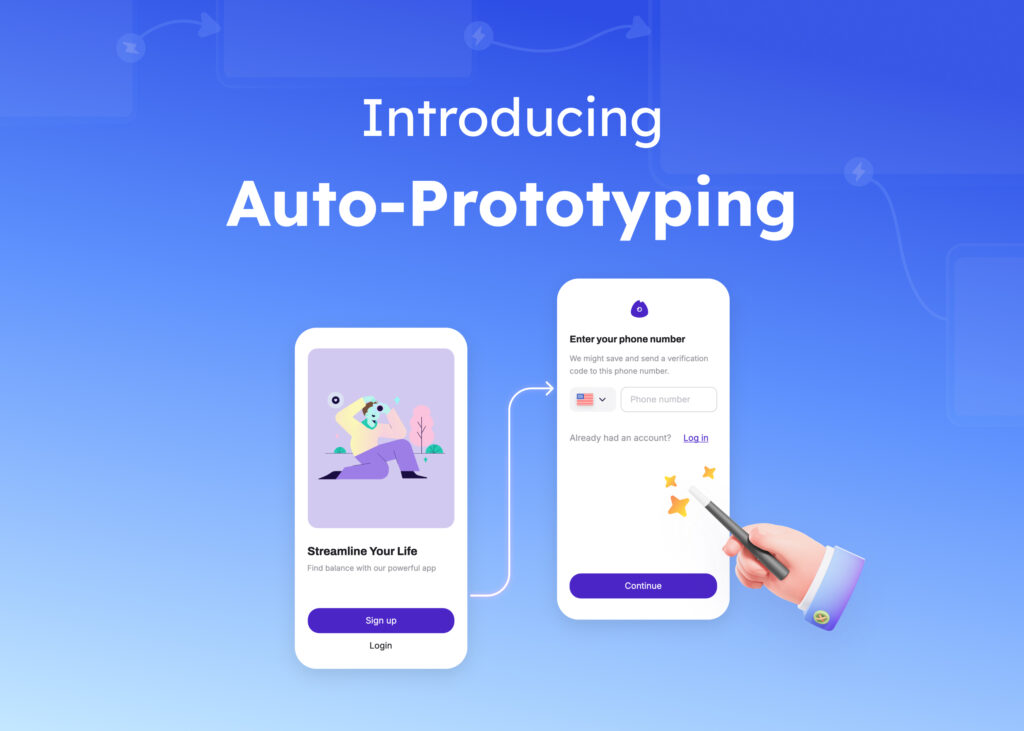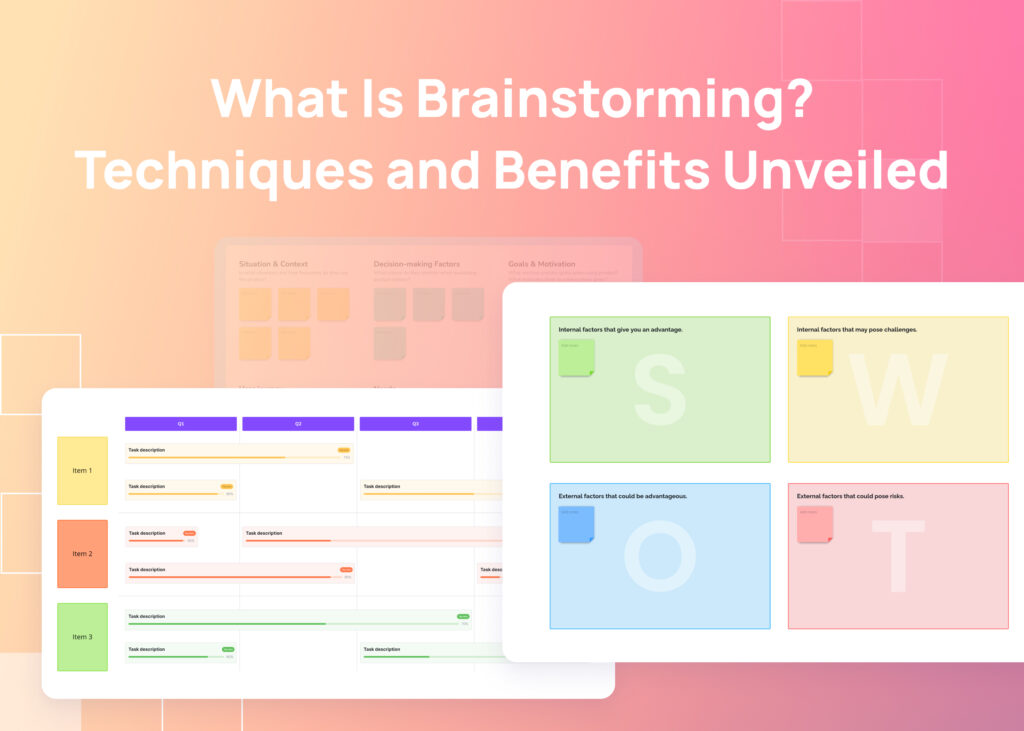If you’re interested in a career that sits at the intersection of business, technology, and user experience, product management might be the perfect fit for you.
While the field is dynamic and rewarding, it’s also competitive—to break in, you need the right strategy. In this blog post, we’ll explore five effective ways to get into product management, leveraging insights from industry experts and top resources.What is product management?

What skills do product managers need
As you embark on your journey to become a product manager, it’s crucial to understand the blend of hard and soft skills that will make you successful in this role. These skills range from technical expertise to leadership abilities, all of which are essential in managing products effectively and leading a team towards a common goal.Let’s delve into the key skills you need to cultivate.Hard skills
- Understanding of software development: While product managers don’t necessarily need to code, a basic understanding of software development is beneficial. This knowledge will help you empathize with your engineering team and communicate effectively when developing timelines and a roadmap.
- Writing technical specs and requirements: Being able to create detailed technical product specs and requirements is crucial. These documents provide a specific direction for your engineering and design teams.
- Conducting market research: Market research helps determine whether there is a market for the product and how the product can best serve that market. This includes assessing customer needs, gathering customer feedback, conducting user interviews, and surveys.
- Knowledge of user experience best practices: While a product team often includes UX and UI experts, it’s helpful for product managers to have some knowledge of user experience best practices. This knowledge can help you communicate requirements more effectively and can be used when creating wireframes or other product documentation.
Soft skills
- Critical thinking and analytical skills: Product managers must be able to analyze information and data and provide actionable insights to their teams. This helps ensure products provide sufficient value to both the business and their customers.
- Leadership and ability to take initiative: As with any management position, leadership skills are important for supporting and motivating your team. Product managers often have to lead cross-functional teams that may include representatives from the engineering, marketing, and sales teams.
- Flexibility: Priorities can change daily in the world of product management. Product managers need to have prioritization skills and must be able to keep up with changes in their business and in the competitive landscape.
- Problem solving: At their core, products are intended to solve problems, for a business and/or for a specific type of customer. A problem-solving mindset is a key part of creating and brainstorming product ideas.
- Time management: Product managers are constantly juggling different products and projects. Time management skills help product managers handle everything on their plate, while still completing tasks efficiently and pushing products through to launch.
- Communication skills: Proper communication skills, including written and spoken communication, ensure that the product manager can effectively communicate with and lead their team to get successful products launched on time and on budget.
In addition to these hard and soft skills, there are many intangibles that boost a product manager’s ability, like product vision, emotional intelligence, and the ability to ask the right questions. Continually upgrading your skills through attending product management conferences, listening to podcasts, and reading expert blogs will help you stay relevant and effective as a product manager.
5 ways to get into product management
Now that we’ve defined what product management is, let’s dive into the ways you can break into this exciting field.
- Learn the fundamentals
The first step in your journey to becoming a product manager is to understand the fundamentals of the role. This position demands proficiency in a variety of areas, both technical and social.
To gain a solid foundation, consider enrolling in a product management course. These structured learning environments ensure you cover all the basics while receiving continuous feedback from instructors. You’ll learn specific technical skills like developing a go-to-market strategy, defining your minimum viable product, creating competitive analyses, and understanding product launch metrics.
In addition to formal education, immersing yourself in the product management community can be incredibly beneficial. Attend product management meetups to gain diverse perspectives, find a mentor in the field for personalized guidance, read relevant product management books, and volunteer at product management events to network and learn from industry professionals. This active engagement not only enhances your understanding of the industry but also helps you build valuable relationships and continuously adapt in this dynamic field.
Moreover, you’ll also develop essential soft skills such as strategic thinking, leadership, communication, collaboration, and empathy. These skills set successful product managers apart and can be honed while working in a wide range of fields.
- Familiarize yourself with the product management process
Product managers need to be adept at identifying problems worth solving, understanding what products their target customers will buy, and learning to ideate and test a minimum viable product. They also need to be able to assess how best to use their team members’ time and skills.
Most software development follows the Agile methodology, a process for software development based on an iterative approach. As you learn each of the steps in the product management process, you’ll gain a greater understanding of how these steps add up to create a greater whole, and how the decisions you make today can affect the way future steps unfold.
- Develop expertise in related areas
Transitioning into product management often involves developing expertise in areas that are integral to the role. As a cross-functional discipline, product management benefits from a diverse range of skills and experiences. Whether it’s gaining a deep understanding of UX, honing your data analysis skills, or developing a knack for strategic thinking, these competencies can significantly enhance your transition into a full-fledged product management role.
For instance, a background in UX design can provide valuable insights into user needs and behaviors, enabling you to create products that truly resonate with your target audience. Similarly, experience in data analysis can equip you with the ability to make data-driven decisions, a crucial aspect of successful product management. Gaining experience in these related fields not only enhances your skill set but also provides a broader perspective, making you a more effective product manager.
- Develop your own projects to build product skills
Once you’ve learned the basic skills required to see the product development cycle through from start to finish, you can begin putting together your own practice projects to continue reinforcing your skills and gain more experience.
While you may not be able to complete an entire product cycle yourself, you should be able to demonstrate your abilities within its individual steps – for example, writing scenarios, building prototypes, or performing user-testing and analytics.
Product development is a highly collaborative process. To take your practice projects to the next level, you’ll want to connect with some like-minded people looking to demonstrate their own set of skills.
- Create a portfolio to showcase your work
Your portfolio is your primary tool in showing off your talents to potential employers. It should comprise the coursework you complete as part of a product manager course, steps in the Agile methodology that you’ve practiced on your own, or products you’ve worked on with a team.
Use your portfolio to highlight your strengths as a product manager, focusing on the projects you’re most proud of, and using those projects to emphasize your strongest attributes. Make sure your portfolio presents each piece in a coherent way – how does it communicate what contributions you made, what obstacles you faced, and the solutions you innovated to overcome them?
Is product management the right career for you?
Breaking into product management requires a combination of technical knowledge, soft skills, and practical experience. By following the steps outlined above, you can make your way into this rewarding field.
Remember, there’s no singular route to landing a job in product management. It’s about making industry connections, diversifying your skill set, and continuously learning and growing. With dedication and the right strategies, you can successfully transition into a product management role and make a significant impact.
To further enhance your product management journey, consider utilizing AI-powered tools like Visily. Visily simplifies the creation of wireframes, prototypes, and designs, making it accessible for both professionals and those without design backgrounds. By integrating such tools into your workflow, you can streamline your design process and collaborate more effectively with your team.













